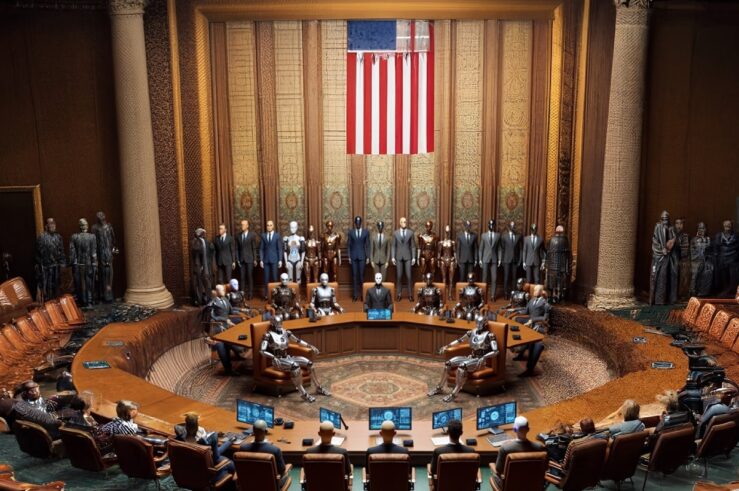In response to my post about the optimal institutional design for merger enforcement and the problems associated with dual federal enforcement, a reader points me to this related paper by Jon Klick, Francesco Parisi, and Norbert Schulz in the International Review of Law and Economics which models alternatives for allocating decision-making across multiple agencies. One of the fundamental insights is that fragmented regulatory authority can result in actions that produce various sorts of externalities in regulatory competition. For example, in concurrent regulation, one might think of the first agency’s decision to approve a merger as increasing the size of the rents that can be extracted by the second actor. This might be a good model of the sizeable extraction achieved by the FCC in the satellite radio merger.
One way to deal with, or at least mitigate, the inefficiencies associated with this sort of fragmentation is cooperation between agencies (e.g. the FTC and DOJ on merger enforcement. The solution I discussed in my post was eliminating the FCC’s jurisdiction (with Danny Sokol’s friendly amendment in the comments with respect to other agencies adopted). But these solutions are really just tinkering on the margins aren’t they? 3 agencies or 2? 2 or 1? Bryan Caplan raises another option: abolish antitrust. Ok, Bryan is talking about antitrust in Hong Kong, but I believe I’m not mischaracterizing his position. Bryan writes:
Even if you’re a mainstream economist who thinks my general critique of antitrust is overblown, you should still grant that for Hong Kong, I’m right. And doesn’t the fact that Hong Kong’s made it this far without antitrust give you a moment’s pause about the domestic benefits of these laws?
I don’t know if I’m a mainstream economist. But I do think Bryan has overestimated the case in favor of abolition, or at least should take a more nuanced stance. In evaluating the social benefits and costs of antitrust enforcement (including rent-seeking, error and administrative costs) I think one really has to distinguish between cartel enforcement, mergers, and monopolization. The evidence that antitrust can generate net benefits in the first category is much stronger than that it is for either mergers or monopolization. Reasonable minds can differ about the state of evidence in those latter categories, as well as whether “real” antitrust enforcement in those categories results in social costs that swamp potential benefits.
Lets just take cartels as an example. It would be tough to argue, based on the evidence, that there is enough there to support abolition of cartel prosecution. And cartel prosecution is a substantial part of the modern competition policy landscape. Nor do I believe that the fact that Hong Kong is a small open economy or that it has gone a long time without antitrust means that cartel prevention is ineffective in the U.S. or cannot be in Hong Kong. This is not an optimistic or utopian view of antitrust. I don’t think I’ve ever been accused of that. I’m written quite skeptically about enforcement in the single firm conduct area and how little we know in these areas should inform our policy. One can argue that in practice, cartel enforcement really amounts to consumer welfare decreasing activity by overzealous regulators. But thats an empirical question. And I think the evidence pretty strongly suggests that cartel enforcement is good for consumers. The evidence with respect to mergers is a mixed bag and there is no general consensus. The picture is much more bleak with respect to single firm conduct, where not much is known and there is very little empirical evidence to suggest that antitrust enforcement is producing the types of outcomes that would justify the social costs of enforcing and administering those laws.
Bottom line: the position for abolishing antitrust, if we are are basing this on the current state of theory and evidence, is weakest against cartels, uncertain with respect to mergers, and much stronger for single firm conduct.




